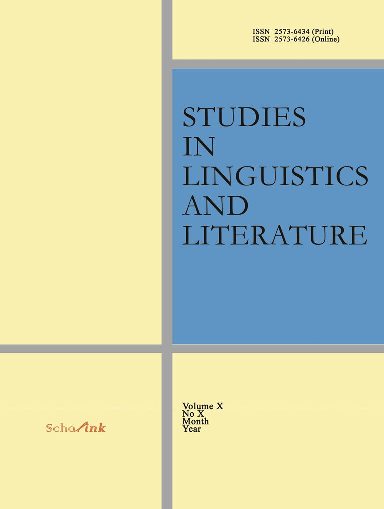| Studies in Linguistics and Literature(SLL) is an international open-access journal published by Scholink. The journal aims to provide a high-level platform for scholars and researchers all over the world to share latest findings and views in the field of applied science. We would welcome scholars and researchers engaging in the related field to submit your manuscripts which are complete unpublished and original works and not under review in any other journals to Studies in Linguistics and Literature. Both of online submission and E-mail submission (sll@scholink.org) are acceptable. ------------------------------------------------------------------------ The journal includes, but is not limited to the following fields:
The journal is indexed with:
| Open access: Studies in Linguistics and Literature is available online to the reader "without financial, legal, or technical barriers other than those inseparable from gaining access to the internet itself." Peer review: Studies in Linguistics and Literature takes peer review policy. Peer review is the evaluation of work by one or more people of similar competence to the producers of the work (peers).  |
Announcements
Call for Papers for Vol. 10, No. 1, March, 2026 |
|
| We are calling for submission of papers for Vol. 10, No. 1, 2026. Please submit your manuscripts online. You may also e-mail submissions to sll@scholink.org | |
| Posted: 2025-12-25 | |
Call for Papers for Vol. 9, No. 4, December, 2025 |
|
| We are calling for submission of papers for Vol. 9, No. 4, 2025. Please submit your manuscripts online. You may also e-mail submissions to sll@scholink.org | |
| Posted: 2025-09-11 | |
Call for Papers for Vol. 9, No. 3, September, 2025 |
|
| We are calling for submission of papers for Vol. 9, No. 3, 2025. Please submit your manuscripts online. You may also e-mail submissions to sll@scholink.org | |
| Posted: 2025-06-23 | |
| More Announcements... |


